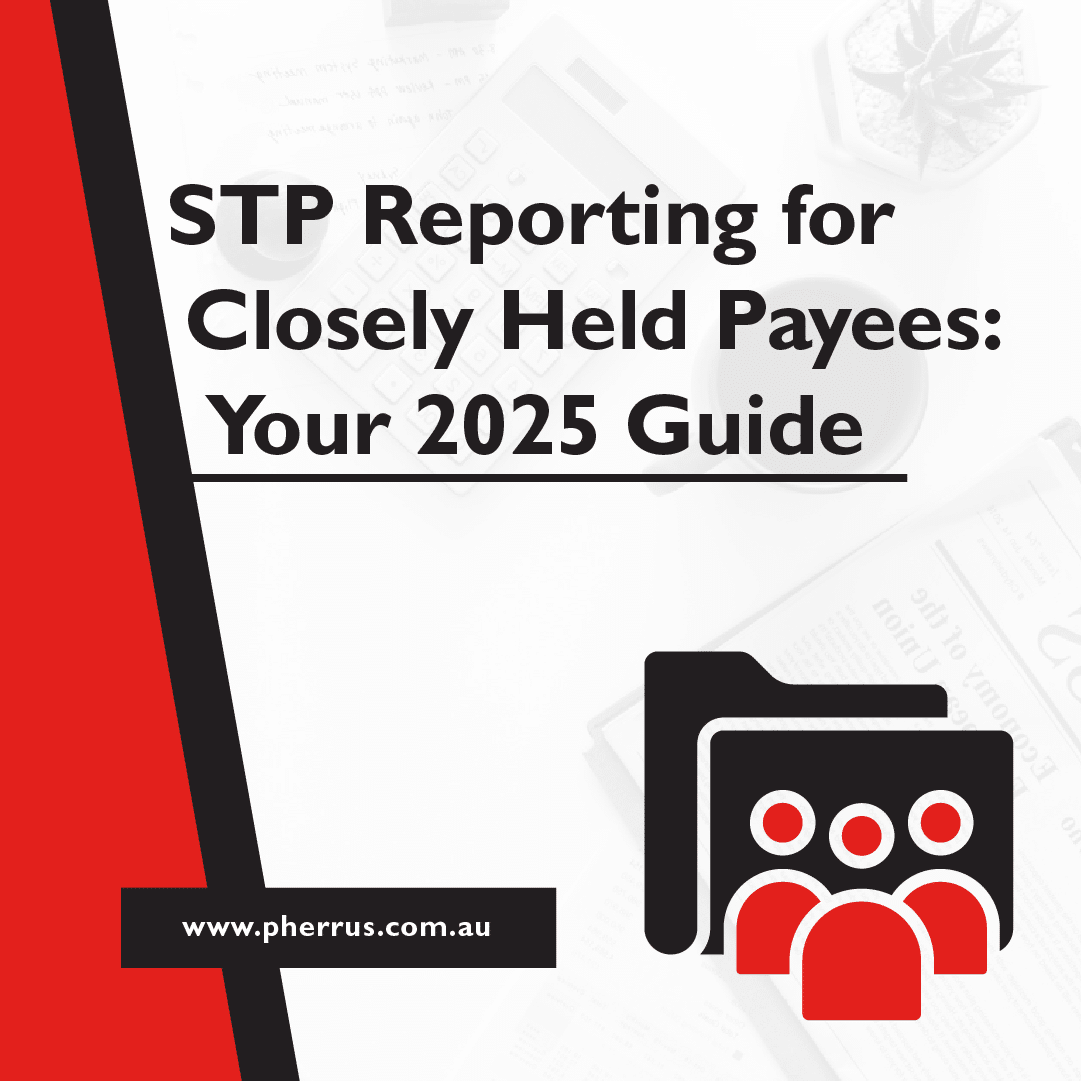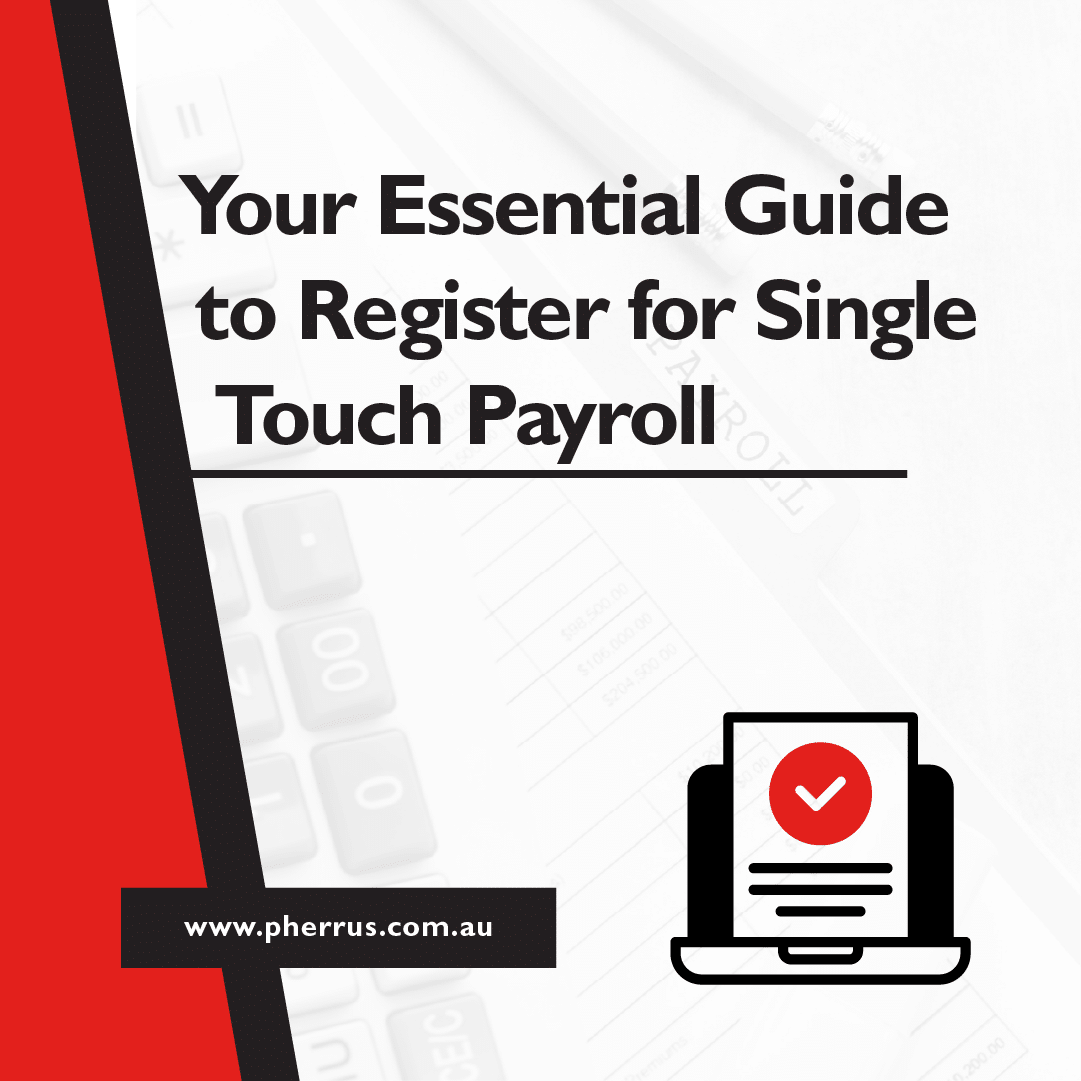Is your business facing a mountain of debt and struggling to keep up with payments?
Have you recently received a statutory demand?
This formal legal document demands payment from whoever your company owes money to, be it a creditor or the Australian Taxation Office (ATO).
If you have, you’re understandably feeling overwhelmed and stressed. But there’s no need to panic!
With the help of qualified accountants, you can work through this crisis and come out the other side with a workable plan to manage your debts and avoid bankruptcy.
At Pherrus Financial Services, our experienced accountants can assist with statutory demands in several ways.
We can
- Help you understand your financial position.
- Assess the validity of the demand.
- Negotiate a payment plan or settlement.
- Prepare and submit a response to the demand.
- Provide ongoing financial management advice to help you avoid similar situations in the future.
- Guide you on bankruptcy and insolvency practitioner options if necessary.
Contact us today to find out how we can help you confidently navigate the statutory demand process.
Now let’s learn more about how the right accountants can be your best ally in weathering this storm.

What Is a Statutory Demand?
A statutory demand is a formal legal document a creditor or the ATO can issue against you if you owe them a debt.
An ATO statutory demand is generally issued for outstanding tax or superannuation.
This demand notice will contain details about the debt you owe, including
- The nature of the debt.
- The amount outstanding.
- The date by which you must make the payment.
- An affidavit verifying the debt and confirming the ATO has not received payment from you.
As a business owner, you must respond to the statutory demand within 21 days.
You can respond by paying the debt in full, negotiating a payment plan with the ATO, or disputing the validity of the demand.
If you choose to dispute the demand, you must do so in writing and provide evidence to support your claim.
If you fail to respond to the statutory demand within 21 days, the ATO may conclude that your company is insolvent (unable to pay its debts).
In this case, the ATO can apply to the Federal Court to wind up your company.
This legal process involves an official liquidator dissolving your company, selling its assets, and distributing the proceeds to settle outstanding debts.
It’s recommended to seek professional advice from a qualified accountant or solicitor to assist you in responding to the demand and protecting your business’s interests.

How Can I Protect My Company and Finances After a Statutory Demand?
If your company has received a statutory demand, seeking professional advice to protect your business and finances is crucial.
This serious legal matter could significantly affect your business’s financial future.
What are some services experienced accountants can provide to assist your company when responding to a statutory demand?
Financial Analysis
An accountant will conduct a comprehensive analysis of your company’s financial position, reviewing your cash flow, financial statements, and other relevant financial data.
They’ll also look for potential financial risks that could impact your ability to manage the ATO statutory demand effectively.
These risks may include
- Insufficient cash flow.
- Overreliance on debt.
- Poor financial management.
- Economic factors, such as a recession or changes in market conditions.
- Legal risks, such as pending lawsuits or regulatory fines.
Identifying your financial position, including potential risks, will help your accountant assess your ability to pay the debt and determine the best course of action.
Payment Negotiation
It’s important to reach a realistic and feasible payment agreement with the ATO.
An accountant will analyse your financial position and create a proposal taking into account your ability to pay the debt.
They’ll then negotiate payment plans or settlements with the ATO.
Negotiations can include revised payment terms, interest rates, and other relevant terms to ensure the agreement is manageable for your business and acceptable to the ATO.
The ATO will require viable information about your business to assess its ability to adhere to a payment plan.
An accountant can help gather this information, including
- Recent bank statements.
- Profit and loss statements for the previous two financial years.
- Details of current financial commitments, such as lease agreements.
- Outstanding amounts your business owes to other parties.
- Amounts owed to your business by others.
Dispute Resolution
The ATO may have valid reasons to withdraw a statutory demand if there are issues that render it incorrect or improperly issued.
For example, if they sent it to the wrong address, included inaccurate amounts, or committed any other procedural errors.
If there are such issues, an accountant can assist you in disputing the demand’s validity.
They’ll review the ATO’s demand and assess the accuracy and completeness of its information.
Based on their analysis, they’ll prepare a detailed explanation of the dispute and respond to the ATO in writing.
An accountant will help present your case effectively and clearly, providing the necessary evidence to support your dispute.
They can also negotiate with the ATO to reach a satisfactory resolution for both parties, avoiding costly and time-consuming legal action.
Financial Management Advice
Ongoing financial management advice is essential to help improve your cash flow, manage your debts effectively, and prevent similar situations from arising in the future.
An accountant will develop a realistic budget based on your financial position and guide you in managing your accounts receivable and payable, including strategies for reducing late payments and improving cash flow.
Additionally, they’ll analyse your financial statements to identify areas where you can improve your profitability and reduce costs.
They can advise on financial reporting, including preparing financial statements that comply with relevant accounting standards and regulations.
Insolvency Advice
If you cannot pay your debt within the 21-day timeframe, the ATO may take further legal action to recover the debt, possibly initiating insolvency proceedings against your company.
Some signs that your company may be at risk of insolvency include
- Being unable to pay the debt in full or come to a payment agreement with the ATO.
- Having multiple outstanding debts with the ATO.
- Experiencing cash flow difficulties or declining sales.
- Being unable to obtain additional credit or funding.
- Having insufficient assets to meet your liabilities.
Insolvency is a complicated process and requires the skill of an expert in this field.
An accountant can refer you to an appropriately qualified insolvency practitioner to assist you.

Have Questions About Statutory Demands? Pherrus Is Here To Help
At Pherrus Financial Services, our team consists not only of highly skilled accountants but also legal experts, agents, and consultants from a wide range of industry backgrounds.
So our team is qualified to answer all your questions about statutory demands.
What Is the Statutory Minimum of Demand?
Currently, the Australian Federal Government sets the statutory minimum demand for debt at $4,000.
You have 21 days to respond to a statutory demand.
Within this timeframe, you must either pay the debt in full, come to a payment agreement with your creditor, or face possible further legal action.
What Is a Statutory Demand Affidavit?
A statutory demand affidavit is a sworn statement providing evidence that a statutory demand has been served on a company and the debt remains unpaid.
What Is a Statutory Debt?
A statutory debt is a legally enforceable debt owed to a government entity, regulatory body, or other authority.
Examples of statutory debts include taxes owed to the Australian Taxation Office, fines imposed by a regulatory body, or penalties for non-compliance with certain laws or regulations.
Unlike other types of debts, such as commercial debts, statutory debts are not necessarily based on a contract or agreement between parties.
Instead, they’re created by law and can be enforced legally, including court proceedings, fines, or even imprisonment.
What Is the Statutory Demand Corporations Act?
The Corporations Act of 2001 is Australia’s primary legislation governing companies and financial markets.
It regulates companies’ formation, management, and dissolution while protecting investors and creditors.
Under Section 459E of the Act, a creditor (including the ATO) can serve a statutory demand to a company that owes them a debt of $4000 or more.

Act Fast To Respond to Statutory Demands
If you’re facing an ATO statutory demand notice or fear you may soon, seeking professional advice from a certified accountant is crucial.
Pherrus Financial Services is here to navigate this challenging situation with you to protect your business and financial interests.
With our expertise and guidance, we’ll address the demand, explore all available options, and implement a solid plan to see you through the process.
Don’t wait until it’s too late! Contact us today to take the first step towards financial recovery.
Need help with other aspects of your business?
We’re also experts in taxation compliance, bookkeeping, and insurance policies.
Let us help you find your financial freedom through our various comprehensive services.
Fill in our online form, and we’ll be in touch shortly.
Alternatively, call us on +61 (02) 9099 9109 to book an appointment at our Bella Vista office in Sydney, NSW.





